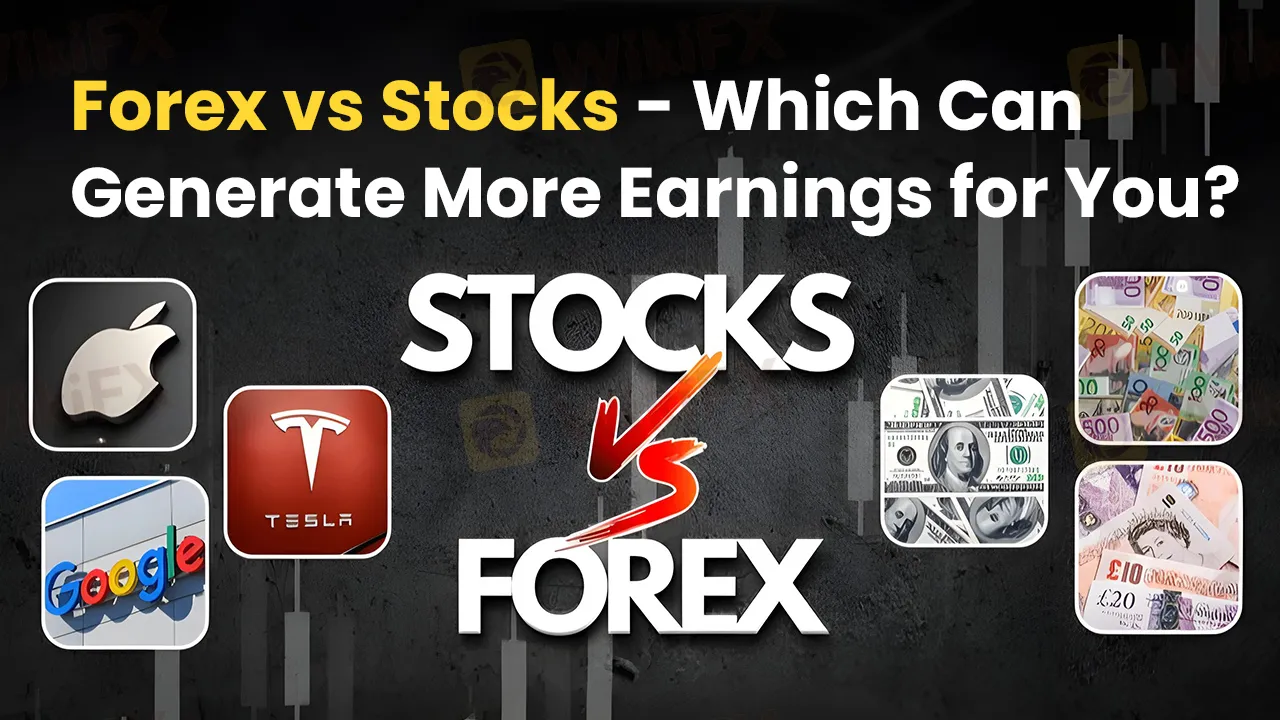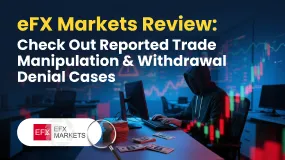Abstract:When looking to build wealth at a faster pace, stocks and forex emerge as two powerful alternatives. But which holds more profit potential? Which of the two is riskier? Find out the answers here.

When looking to build wealth at a faster pace, stocks and forex emerge as two powerful alternatives. While both have the potential to create enormous wealth over time, market fluctuations across these can make you shine or lose all your wealth. Choosing the right instrument is thus vital to navigate the market successfully and earn impressive wealth over time. But the question everyone‘s asking - who earns more profit? It depends on the market dynamics, risk, and the strategy employed by investors. We will approach this seemingly complex issue with an easy-to-understand guide. Let’s know each of the two - forex vs stocks - before comparing them based on various crucial aspects.
What is Forex Trading?
Forex trading is selling one currency to buy another currency in the foreign exchange market. In other words, it‘s about trading in foreign currencies, which remains active and buoyant on a daily basis. The average trading volume across forex markets has been above $6 trillion. Purchase and sale of currency pairs remain on for 24 hours and five days across a week, regardless of the traders’ location. Traders use the advanced MetaTrader 4 and MetaTrader 5 software to trade in foreign currencies. Using the software, they can access market data, automated trading options, and charting tools in real time.
What is Stock Trading?
Stock trading involves the purchase and sale of equity share capital through stock exchanges such as the Bombay Stock Exchange (BSE) and the National Stock Exchange (NSE) if you talk about the Indian market. With every stock purchase, you gain ownership of a company that issues shares to the public.
Comparing Stocks vs Forex on Various Parameters
In the ongoing debate between forex vs stocks for a better option, we have listed various parameters. Lets start comparing these two to check which scores more points on these parameters.
Profit Earning Potential
Forex trading receives an enormous profit boost owing to the leverage facility. It allows forex traders to gain enhanced control over market positions with less capital. The leverage ratio can go as steep as 100:1. Using leverage can raise returns on short equity trades. However, it can also incur losses in the absence of adequate risk management. As the forex market can go both upward or downward, it widens the potential of making more gains than a loss, especially amid a highly volatile market environment.
Stock trading, on the other hand, also has its own profit potential. You may not receive much leverage here that you have with foreign currency trading. However, choosing the stocks of high-growth companies can raise your invested capital substantially over time. Holding long positions in stocks is recommended to make the most of a growing economy and market innovation. Short-term stock investments can offer high returns. However, the risk involved here is much higher. Accumulating your goal amount through stock trading sounds feasible over the long term.
Market Structure and Accessibility
The foreign exchange market combines a network of banks, brokers and other financial institutions. This ensures enhanced liquidity and efficiency in the foreign exchange market. The market also offers convenience to traders as far as taking positions regarding political or economic events is concerned.
Stock markets, on the other hand, remain open during specific hours. For instance, BSE remains open from 9.15 a.m. to 3.30 p.m. Indian Standard Time (IST). Despite extended trading hours, traders witness less liquidity and greater market volatility. Someone new to trading may find stock markets challenging. However, the centralized framework of the stock market makes it more regulated than the forex market.
Volatility and Liquidity
The forex market is highly liquid when you trade in the most-sought-after currency pairs such as EUR/USD, GBP/USD, INR/USD and JPY/USD. The excess liquidity can cause intense market fluctuations for forex traders. Stock markets, on the other hand, witness relatively less volatility as the stock price is dependent on the companys performance, earnings, economic reports, and broader market movement.
Conclusion
The Forex vs Stocks debate will go on. Its important to know the circumstances under which these operate and how they react to different market developments. Making an informed choice between the two will go a long way in accomplishing your investment goals.
For more interesting forex updates, download the WikiFX App today.

For more engrossing sessions on forex, join our WikiFX India community on Telegram.











